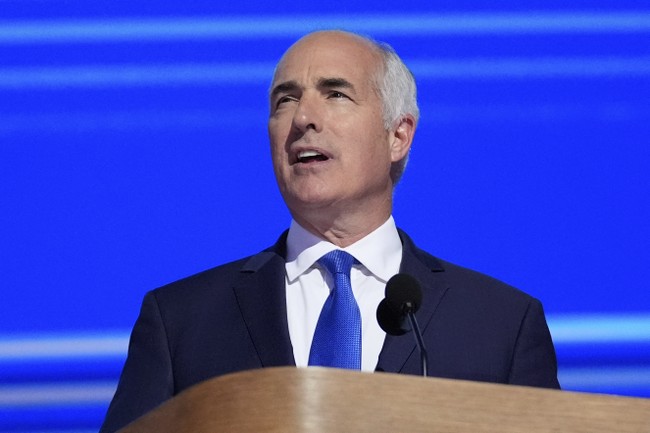The Robinhood Gold Card was unveiled in March 2024 by the investment app Robinhood and issuer Coastal Community Bank. As of this writing, it remains on a waitlist and is not yet widely available to applicants.
Made of stainless steel and weighing in at 17 grams, the card aims to keep up with fancy premium metal credit cards that offer lucrative benefits — and it can certainly deliver that, earning an industry-leading 3% cash back on most purchases. Historically, a 2% flat rate on everything has been as good as it gets for products in this class, especially among no-annual-fee cards like this one.
Still, there are hurdles to accessing the Robinhood Gold Card. In addition to reserving your spot on the waitlist and passing the standard credit check, you must be a Robinhood Gold member to qualify, and that’s not free — although with a 3% rewards rate, it won’t be difficult to offset that cost. One thing you won’t get, however, is a sign-up bonus.
Here’s what you need to know about the Robinhood Gold Card.
1. It offers an uncommonly high rewards rate
As a cardholder, you’ll earn an uncapped 3% cash back on all purchases, aside from travel booking completed through Robinhood’s travel portal, which earns 5% back.
Rewards are issued as points you can redeem at a value of 1 cent apiece for a cash deposit into a Robinhood brokerage account, a statement credit, travel booked through Robinhood’s portal, gift cards purchased through the portal, and shopping with eligible retailers through the portal. To redeem points in these ways, you must have downloaded and installed the latest version of the Robinhood credit card app. (Note that the credit card app is separate from Robinhood’s primary investing app.)
A flat and unlimited 3% rate on most purchases is almost unheard of for cards like this, with the possible exception of some smaller banks and credit unions. That means rewards will accumulate faster if you use the Robinhood Gold Card to cover most purchases — as long as you pay off the card in full each month to avoid interest charges. With an APR that can range as high as nearly 30% (as of August 2024), carrying a balance on this card will be costly.
If you’re looking for cards with even higher rewards rates, you can find them, at least in certain spending categories. The U.S. Bank Cash+® Visa Signature® Card, for instance, gets you 5% cash back on your first $2,000 in combined eligible purchases each quarter in two categories you choose (from a list of 12); 5% back on prepaid air, hotel and car reservations booked directly in U.S. Bank’s Rewards Center; 2% back on an everyday category you choose; and 1% back on all other eligible purchases. It has a $0 annual fee and comes with a sign-up offer for new cardholders: Earn a $200 rewards bonus after spending $1,000 in eligible purchases within the first 90 days of account opening.
2. There’s a waitlist
Getting on the waitlist to reserve the Robinhood Gold Card doesn’t require much effort. You can visit the card’s website to get in line by providing your email address. No other information is required at that stage.
The company has begun rolling out the card to people on the waitlist who are Robinhood Gold members, but it has not yet provided a specific date as to when the card will open up applications to the public. Broad availability is expected in late 2024, according to an early news release.
If you don’t want to wait for a credit card with good rewards on everyday spending, consider other $0-annual-fee products like the Capital One SavorOne Cash Rewards Credit Card or Wells Fargo Active Cash® Card. The Capital One SavorOne Cash Rewards Credit Card offers 3% back on dining, eligible streaming services, grocery stores and entertainment, as well as 1% back on all other purchases. The Wells Fargo Active Cash® Card offers 2% cash back on all purchases.
3. A Robinhood Gold membership is required
The Robinhood Gold Card doesn’t have an annual fee, but you will have to be a Gold member to qualify for it, and that comes with a $5 monthly fee. If you opt to pay annually, the cost is $50.
The card’s 3% rewards rate alone makes it easy to offset the cost of that fee, and that’s before considering the other perks that Gold membership can offer, such as a 5% APY on uninvested cash, a 3% match on Robinhood retirement IRA contributions, a 1% deposit boost on new eligible deposits, and more. Terms apply.
4. Features increase safety and convenience for shopping
The Robinhood Gold Card offers a variety of helpful features — some not always available on other cards — that make it easier to manage your spending. As a cardholder, you can expect access to these options:
-
Virtual cards: The card comes equipped with disposable card numbers that may be used as virtual cards that provide an added security option when shopping online.
-
Options to simplify free trials and subscriptions: The card offers a way to cancel subscription payments, end free trials automatically, and authorize cards for one-time use.
-
Family-friendly features: You can add up to five family members to the account as cardholders, regardless of their age. Everyone added receives their own card, and you can set spending limits, track their spending and lock lost cards instantly.
-
An app with helpful visuals: You’ll manage the card in an app that, again, is separate from Robinhood’s main investing app. Through the app you can get a financial overview of your spending patterns, real-time spending insights and more.
5. Travel-friendly features
While the Robinhood Gold card can be an ideal cash-back credit card, it also has elements of a decent travel credit card. In addition to the 5% back on travel through Robinhood’s travel portal, the card offers a lengthy list of travel benefits, and it doesn’t charge foreign transaction fees.
As of August 2024, you’ll get trip interruption reimbursement, an auto rental collision damage waiver, extended warranty protection, return protection, roadside dispatch, travel and emergency assistance, Visa Signature concierge service, and purchase security. As is the case with any credit card, though, these benefits may change over time.
If, however, you want a truly travel-focused card with more perks, consider the $95-annual-fee Chase Sapphire Preferred® Card. It earns 5 points per dollar spent on all travel purchased through Chase; 3 points per dollar spent on dining, select streaming services and online grocery purchases; 2 points per dollar spent on travel not purchased through Chase; and 1 point per dollar spent on all other purchases. The card also comes with a $50 annual credit on hotel stays purchased through Chase, plus points take on more value when you redeem them for travel through Chase. On top of that, you’ll get access to multiple travel partners, which can help your points go further. And unlike the Robinhood card, there’s a generous sign-up bonus: Earn 60,000 bonus points after you spend $4,000 on purchases in the first 3 months from account opening. That’s $750 when you redeem through Chase Travel℠.




















Discussion about this post